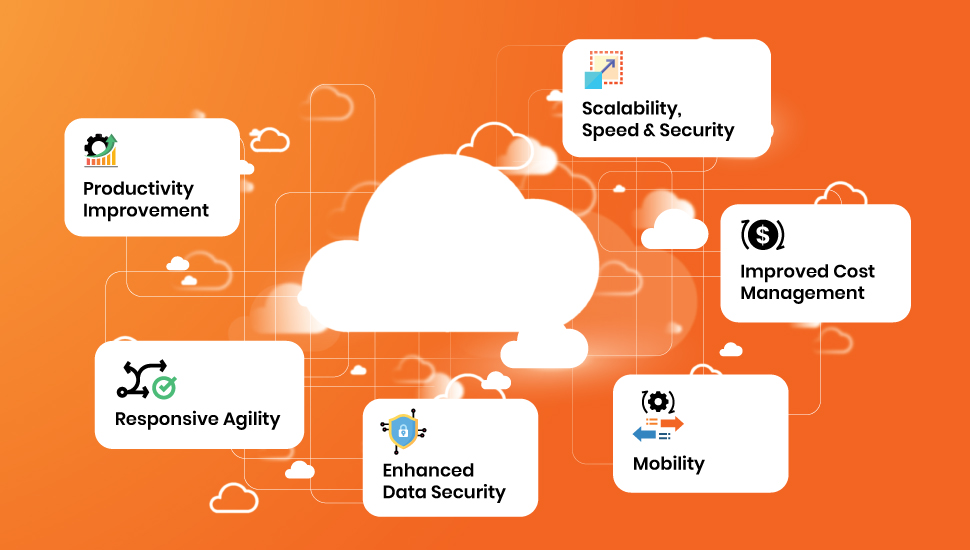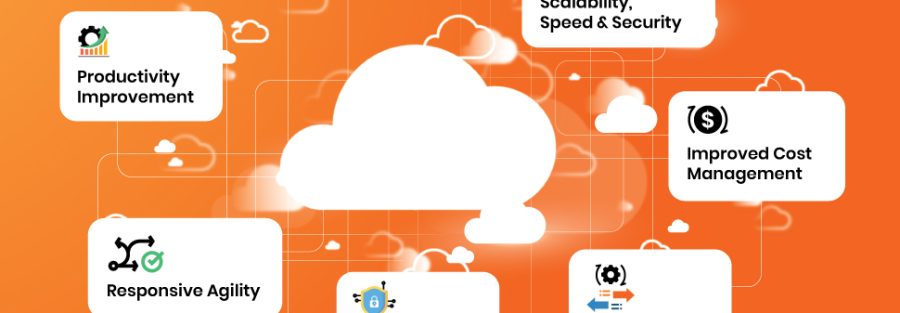Reasons to Migrate to the Cloud in 2024

What is Cloud Migration?
Cloud migration transfers digital assets such as data, workloads, IT resources, or applications to cloud infrastructure.
As cloud technology evolves rapidly, businesses and organizations are increasingly realizing the significance of migrating to the cloud platform. The concept of cloud migration emerges from the imperative to boost efficiency, reduce costs, and harness the flexibility and scalability inherent in cloud environments.
The Growing Importance of Cloud Computing
This shift is more than just data transfer; it is a strategic decision that requires thorough preparation and execution to ensure smooth integration and minimal disruption. Cloud computing’s expanding importance is obvious in its capacity to give organizations a competitive advantage by providing unrivaled access to cutting-edge technologies and worldwide marketplaces. As we look deeper into the causes of this massive shift to the cloud, it is critical to grasp the varied benefits and revolutionary impact it can have on businesses of all kinds.
Comprehensive Benefits of Cloud Migration
The decision to migrate to the cloud is driven by many benefits catering to various aspects of a business.
Scalability and Flexibility
Scalability and flexibility are major advantages. Cloud environments enable organizations to scale their IT resources up and down in response to demand, ensuring that they do not pay for idle capacity. This scalability is critical for firms with fluctuating or expanding markets.
Cloud scaling is far simpler and less expensive than scaling up digital capabilities in on-premises IT facilities, which requires essentially overhauling the entire system. Most cloud services need merely that you upgrade to a higher membership tier or customize your service package to gain additional storage space, computational capability, or functionality.
On-premises infrastructure costs can be quite complex because many hidden expenses include power, cooling, floor space, product lifecycles, warranties, etc. Cloud services provide detailed visibility into your consumption and spending, helping you better understand and manage your costs.
Cost Efficiency and Savings
Companies that migrate to the cloud can save money on physical IT infrastructure maintenance and upgrades. The pay-as-you-go concept of cloud services allows organizations to pay for just what they use, resulting in significant cost savings.
Understanding on-premises infrastructure expenses can be challenging because many costs are hidden, such as power, cooling, floor space, device lifecycles, warranties, and so on. Cloud services provide detailed visibility into your consumption and spending, helping you better understand and manage your costs. Lowering IT costs is a key financial incentive for cloud migration.
Technical Advantages
Improved Disaster Recovery and Backup
The technical benefits of migrating to the cloud are significant, beginning with improved disaster recovery and backup. Cloud backup solutions make restoring data after a disaster easier and faster. This resilience is critical to ensuring company continuity.
Physical on-premises data storage facilities and data centers are very vulnerable to data loss due to human error, accidents, and natural disasters such as fire and inclement weather.
The cloud is an excellent data storage and backup solution that poses astonishingly few hazards. Cloud storage solutions utilize sophisticated algorithms to store data across several networked computers in different places. This storage technique introduces redundancy and high tolerances, ensuring data integrity and availability. Cloud data is easily accessible and recoverable even if a server fails or some data becomes corrupted.
Furthermore, some advanced cloud storage systems provide automated backup and recovery, secure deletion protocols, strong user authentication, and data integrity checks.
Automatic Software Updates
Migrate to the cloud and let your business utilize the latest and most advanced enterprise tools available. In addition to maintaining the cloud environment, leading cloud service providers update and upgrade their systems to keep up with evolving technologies. Cloud updates are automatic, cost no extra cost, and reduce downtime.
Working with the latest software and hardware versions improves security, performance, and efficiency. With cloud services, you can focus on running your business without worrying about endless system updates or security patches.
Another technological advantage is automatic software updates. With cloud services, the responsibility for maintaining and updating software is passed to the service provider, ensuring that enterprises always have access to the most recent technology without incurring additional costs or effort.
Migrating to the cloud allows your company to use the most recent and powerful enterprise solutions available. In addition to maintaining the cloud environment, premier cloud service providers regularly update and upgrade their systems to stay up with changing technology. Cloud updates are automatic and free and help reduce downtime.
Working with the most recent software and hardware versions increases security, performance, and efficiency. With cloud services, you can concentrate on running your business instead of worrying about constant system updates and security fixes.
Data modernization
Data modernization refers to transferring data from legacy systems to more advanced data management solutions. Modernizing data is mainly done to prepare it for high-tech enterprise tools like data analytics and visualization systems.
The cloud offers excellent infrastructures for updating and modifying data using intelligent analysis to gain important insights such as consumer behavior, market trends, and performance indicators.
Business and Operational Benefits
The impact of cloud migration extends beyond technical aspects, offering significant business and operational benefits.
Fostering Innovation and Agility
One of the most significant benefits is the promotion of innovation and adaptability. The cloud provides organizations with the tools and technologies to develop quickly, responding to market shifts and client demands. This adaptability is transformative in today’s fast-paced business climate.
Global Reach and Mobility
Cloud computing enables organizations to operate better and compete in the global market. It allows the smooth integration of distant workforces and increases the potential consumer base.
Remote access allows you to conduct business while traveling without requiring a physical office. It provides your business exciting new prospects, such as convenient work-from-home policies, virtual workspaces, and regional growth.
Environmental Impact and Sustainability
In addition, cloud computing helps to promote environmental effects and sustainability. Cloud computing helps to create a more sustainable and environmentally friendly company model by maximizing resource use and minimizing the demand for physical infrastructure.
The operational benefits of cloud migration go beyond efficiency and cost savings; they redefine how firms operate, compete, and innovate in a global marketplace.
Financial Considerations in Cloud Migration
When considering migrating to the cloud, financial aspects play a pivotal role.
Understanding the Cost Structure
Understanding the cost structure of cloud services is essential. Unlike traditional IT infrastructure, cloud computing is often delivered via a subscription or pay-as-you-go approach, which can result in significant cost reductions. However, these costs must be carefully assessed and planned to optimize the financial rewards.
Long-term Financial Benefits
Cloud migration offers long-term financial benefits such as reduced IT maintenance costs, lower energy consumption, and the flexibility to allocate resources to strategic initiatives.
Financial considerations are vital in cloud migration decisions, yielding significant long-term benefits for enterprises with a comprehensive understanding.
Future of Cloud Computing
The future of cloud computing is marked by continuous innovation and growth.
Emerging Trends in Cloud Technology
Cloud technology developments include artificial intelligence, machine learning, and the Internet of Things (IoT). These technologies are expected to expand the capabilities and benefits of cloud computing.
How Cloud Computing is Shaping Businesses
Furthermore, the way cloud computing influences enterprises is changing. The cloud is becoming an increasingly important component of digital transformation initiatives, allowing businesses to be more agile, data-driven, and customer-centric. Combining cloud computing with other developing technologies opens up new avenues for innovation and growth.
The future of cloud computing is more than simply technology; it’s about how it helps businesses expand and adapt in a quickly changing digital ecosystem.
Conclusion
Finally, the cloud migration journey offers numerous benefits, ranging from technological advantages to operational savings and financial rewards. The move to the cloud is more than a trend; it’s a fundamental transformation revolutionizing how businesses operate and compete in the digital age.

Jilesh Patadiya, the visionary Founder and Chief Technology Officer (CTO) behind AccuWeb.Cloud. Founder & CTO at AccuWebHosting.com. He shares his web hosting insights on the AccuWeb.Cloud blog. He mostly writes on the latest web hosting trends, WordPress, storage technologies, and Windows and Linux hosting platforms.


